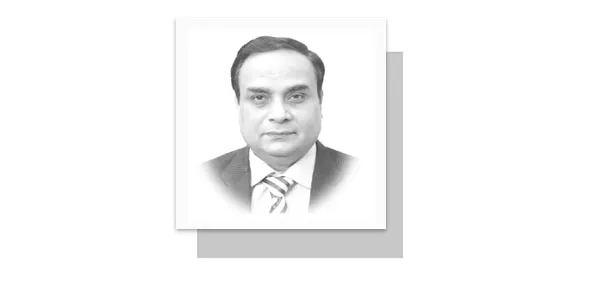THE Indonesian President-elect, Subianto Prabowo, will assume office on 20 October 2024. Fortunately, because of constant and continued structural economic reforms initiated by the incumbent President Joko Widodo, he will have a strong macro-economy with robust and stable growth (5.1 percent on average over the last ten years, excluding the COVID-19 period), a low fiscal deficit, moderate public debt and sound external accounts. During a panel discussion at the 4th Qatar Economic Forum the President-elect Prabowo pledged to achieve up to 8pc economic growth during the next few years. He assured that because of strong economic indicators and brighter prospects, Indonesia will easily achieve a growth rate of up to 8pc.
It appears that he has chalked out holistic and comprehensive plans to focus on agriculture, food production and the transition to biofuels during his presidency. Moreover, he spoke highly about comprehensive green energy transformation. He showcased an innovative idea to produce fuel from palm oil, which would generate significant growth.
The President-elect of Indonesia shared that his country spends more than US$ 20 billion annually to import fuel which will be saved by switching to biofuel production. He emphasized on achieving food security, youth rehabilitation, energy security and benefiting from natural resources and exploiting them in various industries. He termed good governance and strengthening mechanisms must to confront corruption and waste. He has clarified that his country will not follow any protectionist policies. However, he emphasized limiting the production of raw material. Talking on budgetary and monetary management, he pointed out that both are in good shape and the budget deficit in Indonesia is currently at 3pc which recorded the lowest debt-to-GDP ratio in the world; however, he termed financial discipline and zero-corruption is the way forward for his country. Therefore, the Indonesian Government must reduce waste and improve expenditure for non-core activities, effectiveness and good management as well as adopt digitization and electronic governance in government procurement that will enhance the budget and raise rates of return from services and taxes. President-elect Prabowo Subianto also addressed the plans to move the capital, which he said would cost around USD 35 billion, indicating that this step is one of the means of extending growth beyond the current capital, Jakarta.
Regarding attracting foreign investment to the new capital, he said that in the light of the period scheduled for the construction of the new capital, which ranges between 25 to 30 years, they will rely on their national resources in the first place as the Indonesian economy is able to bear the costs of that. His strong commitment to continuing several of the current administration’s policies signal a stable investment climate and reduced political uncertainty, crucial for enabling Indonesia to achieve its investment target of Rp1,650 trillion in 2024, with at least 50pc coming from foreign direct investment (FDI). Priority investment includes development of Special Economic Zones, development of the Batam, Bintan, and Karimun areas and the capital relocation (Ibu Kota Nusantara) megaproject.
In 2024, it is expected to remain dynamic, despite slowing down slightly to 4.9 percent before rebounding to 5.1 percent in 2025, once the uncertainties surrounding the change of government have passed. In the short term, the main risks to the economy are linked to the international environment. The policy makers of Indonesia should capitalize on its demographic dividend, and start investing in human capital through adopting economic policies that should promote the extensive use of its labour force for increasing the sharp increase in the labour supply) and attracting FDIs. Additionally, the new government will have to start integrated efforts to increase new employment ratios among women and young people which are highly insufficient. According to Statistics Indonesia (December 2023), the unemployment rates for 15-19 year-olds and 20-24 year-olds were 29.1 percent and 17 percent, respectively, in 2022.
According to the International Labour Organization, the employment rate for women was 51.7 percent in 2023, compared to 79.1 percent among men which must be rectified through introducing numerous labour centric reforms in the different sectors of the national economy. Since 2014, Indonesia’s real GDP per capita (at purchasing power parity) has increased by 2.9 percent per year on average. Moreover, there is an urgent need to focus on the agriculture sector which employs 28.2 percent in 2023. To accelerate the pace of job creation, the new government must successfully manage to develop the labour-intensive industrial sectors, which involves attracting more FDIs.
However, FDI inflows in Indonesia, which are already structurally weak, fell by 0.4 pp in 2023 to 1.6 percent of GDP, the lowest level recorded in the last five years. This low level is due to cyclical factors mainly the drop in global liquidity and uncertainty stemming from the February 2024 elections, but also due to Indonesia’s low level of integration into global trade which should be revised as soon as possible in the days to come. In summary, the Indonesian market shares are low 1.1 percent of global exports and have barely increased over the past twenty years (+0.2 pp). According to the OECD, 42 percent of 25-34 year-olds have not attained an upper secondary educational qualification. Spending on education is still too low (3 percent of GDP). It is suggested that the new government must optimise its tax structure and increase its revenue in order to meet the needs of young people and achieve its goal of becoming a high-income country by 2045.
—The writer is President, Pak-China Corridor of Knowledge, Executive Director, CSAIS, regional expert: China, CPEC & BRI.
(mehmoodulhassankhan@yahoo.com)










